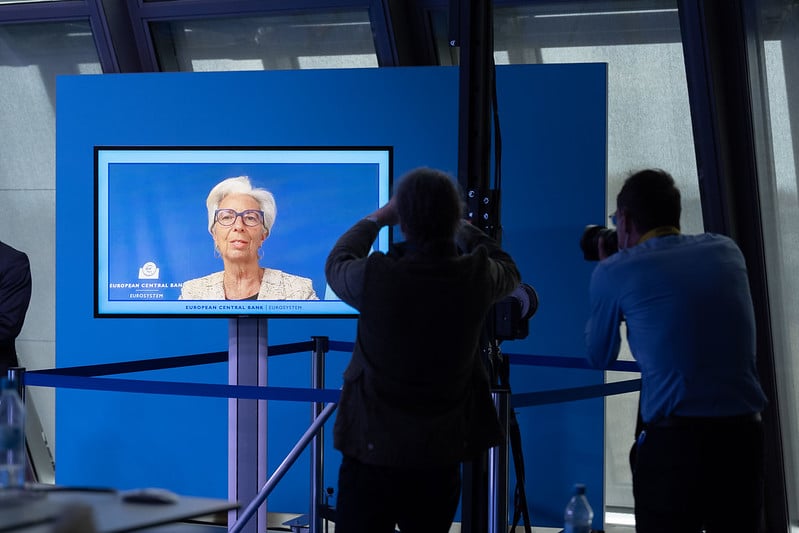On the ninth of June, the European Central Bank (ECB) will meet to discuss the accelerating monetary economic developments that were exacerbated in the Euro area by the Russian-Ukrainian war.
This meeting comes ahead of a new meeting by the Federal Reserve (Fed) on the 15th of June, when it is expected to announce a new increase in interest rates in order to seek to contain inflation. Two days ago, the Fed announced the boldest increase in 22 years, by half a percentage point.
It also comes after the Bank of England (BoE) raised the main interest by a quarter of a percentage point to reach 1 percent to counter inflation in the United Kingdom, which is likely to rise above 10 percent in the Q4.
Most expectations indicate that the ECB will follow the lead of the Fed and the BoE, and raise interest rates in July. This is at a time when inflation reached very high levels, amounting to 7.5 percent last month, much higher than the target of 2 percent.
Will interest rates really rise in July?
This is a question that Luis de Guindos, Vice President of the European Central Bank, answers with “it will depend on the new data and macroeconomic outlook in June. In April, the ECB’s Governing Council decided that asset purchases would end in the third quarter.
“In his opinion, “There is no reason why this should not happen in July. Prices will go up after that. Exactly how much time is yet not decided. It could be months, weeks or days. July is possible, but that does not mean it is probable.”
And whether he saw any danger of a recession, the European official answered that the invasion of Ukraine would increase inflationary pressures and reduce economic growth.
He explained that the prices of raw materials and energy have risen in the manner implied, which will lead to the imposition of a tax on workers and companies, because these imported production factors have become more expensive. This, in turn, will lead to a decline in living standards.
“On the risks of a recession, in June we will have a new forecast. What we are already seeing is a significant weakening of growth. However, growth will be positive in 2022. And if we stick to the technical definition of a recession -two straight quarters of negative growth – we’re not seeing it right now,” he added.
French Central Bank
“This year, the ECB should raise the deposit rate back to a positive level,” French Central Bank President Francois Villeroy de Gallo said in comments indicating his support for at least three increases in 2022.
He suggested a course for the ECB, saying, “In the first step, it should end bond purchases at the end of June, then raise interest rates on deposits to 0.5%.”
The epidemic, energy shock and war are major challenges
Chief Economist and Member of the Executive Board of the ECB, Philip R. Lynn, says: The pandemic, the energy shock and the war in Ukraine are the three main challenges in assessing the economic and inflation outlook for the Eurozone.
Lin revealed that the ECB is preparing for a series of interest rate increases that will put its reference rate on a positive path.
Rin: The rate will be zero by the fall
“The ECB should raise the deposit rate in July by 0.25 percentage points,” Olli Rehn, policymaker at the European Central Bank, told a Finnish newspaper on Thursday.
Ren explained that the rate will be zero by the fall. It is currently 0.5 percent below zero.
“After that, we can continue monetary normalization more gradually and proactively,” added Rehn.
He explained that inflation expectations are very different in the Eurozone compared to the US, where the Fed raised its benchmark interest rate measurement range by 0.5 percentage point.
German Ifo Institute
The head of the German Ifo Institute, Clement Fuest, supports Rehn in his statements. He told a German newspaper that the ECB should raise interest rates quickly in line with the US, given the high inflation in the Eurozone.
He adds that higher interest rates in the US will cause the dollar to appreciate against the euro, which will increase inflation.
No to raising interest
On the other hand, ECB Governing Council member Fabio Panetta announced that the ECB should not raise interest rates in July, despite the inflation rates.
“It would be unwise to act without going through the tough numbers around Q2’s GDP and discussing it without fully understanding how the economy is developing,” Panetta said.








